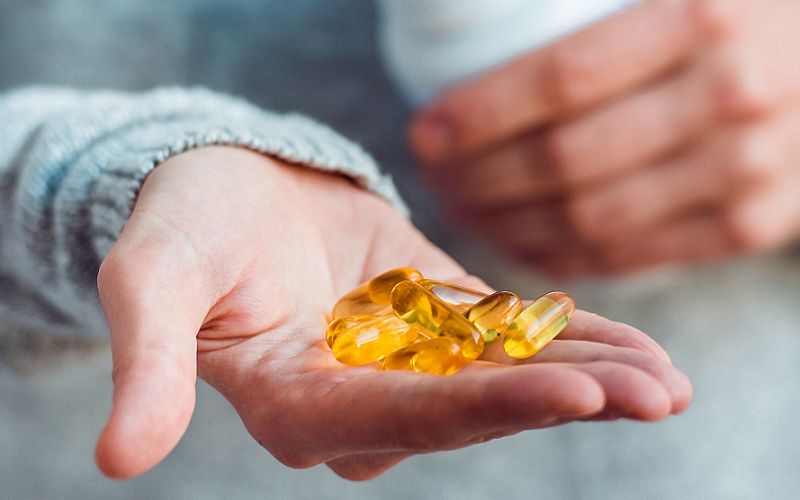
Phosphatidylserine is a phospholipid found naturally in the human brain and is essential for healthy nerve cell membranes and cognitive function. It has gained popularity for its role in enhancing memory, reducing stress, and potentially slowing the cognitive decline associated with aging. On the other hand, Ashwagandha, a revered herb in Ayurvedic medicine, has been used for over 3,000 years to relieve stress, increase energy levels, and improve concentration. Known scientifically as Withania somnifera, it is classified as an adaptogen, helping the body manage stress and exhibiting a neuroprotective effect. Given the unique benefits of Phosphatidylserine and Ashwagandha, it’s natural to wonder whether combining them could amplify their effects or, conversely, if such a combination might present unforeseen risks.
Contents
Understanding Phosphatidylserine
As we explore nootropics and their impact on cognitive health, Phosphatidylserine emerges as a key player.
What is Phosphatidylserine?
Phosphatidylserine is a fatty substance produced in the body that covers and protects every cell in the body and is particularly vital in the brain. It plays a crucial role in keeping your mind and memory sharp. As a key component of cell membranes, it aids in the transmission of messages between nerve cells. While the body can synthesize it, levels can also be boosted through dietary sources and supplements.
Benefits of Phosphatidylserine
Research highlights several cognitive and psychological benefits of Phosphatidylserine supplementation. It’s primarily known for its ability to enhance memory and cognitive capacity, particularly in aging populations. Studies suggest it may help with age-related cognitive decline and even improve symptoms of Alzheimer’s disease. Beyond cognitive health, Phosphatidylserine may reduce stress by lowering cortisol levels, thereby offering an antidote to the wear and tear of daily stress on the mind and body.
Exploring Ashwagandha
Ashwagandha, with its rich history in traditional Ayurvedic medicine, has gained significant attention in the realm of modern wellness and nootropic supplements.
What is Ashwagandha?
Ashwagandha, known scientifically as Withania somnifera, is a powerful herb used for thousands of years in Ayurvedic healing. Often called the “Indian ginseng” for its restorative properties, it is renowned for its ability to balance, rejuvenate, and invigorate the body. As an adaptogen, Ashwagandha helps the body manage stress and has been shown to have a wide range of health benefits [1].
Benefits of Ashwagandha
The benefits of Ashwagandha are both broad and profound. It has been traditionally used to bolster the immune system, relieve stress, increase energy levels, and improve concentration. Scientific studies have corroborated these uses, showing Ashwagandha’s efficacy in reducing cortisol levels, combating stress and anxiety, enhancing brain function, and potentially aiding in depression treatment. It may offer anti-inflammatory and antioxidant properties, contributing to overall health and longevity.

Synergies Between Phosphatidylserine and Ashwagandha
Combining nootropics, often referred to as “stacking,” aims to amplify their individual benefits through synergistic effects. In the context of Phosphatidylserine and Ashwagandha, understanding their potential synergies can provide insights into how these supplements might work better together than separately.
Complementary Benefits of Phosphatidylserine and Ashwagandha
Phosphatidylserine and Ashwagandha offer distinct yet complementary benefits that could enhance cognitive function and stress resilience more effectively when taken together. Phosphatidylserine is primarily known for its cognitive-enhancing properties, improving memory, focus, and neuroplasticity. On the other hand, Ashwagandha is celebrated for its adaptogenic qualities, helping the body manage stress, reduce anxiety, and support overall vitality. Theoretically, the combination targets both the mind’s performance and its ability to handle stress, potentially offering a more comprehensive approach to cognitive health and well-being [2].
Scientific Studies on Combination Effects of Phosphatidylserine and Ashwagandha
While extensive research on the combined effects of Phosphatidylserine and Ashwagandha is limited, some studies and theoretical frameworks suggest that their synergistic use could optimize mental function and stress management. Research on individual supplements shows clear paths through which they support cognitive health and stress resilience, indicating a potential for enhanced effects when used together. Future studies could provide more definitive evidence of these synergies, but the existing body of knowledge presents a promising outlook for combined usage.
Theoretical Synergies of Phosphatidylserine and Ashwagandha Based on Mechanisms of Action
Examining the mechanisms of action for both Phosphatidylserine and Ashwagandha reveals potential for synergy. Phosphatidylserine facilitates communication between brain cells, enhances glucose metabolism in the brain, and improves nerve growth factor (NGF) levels, directly impacting cognitive functions such as memory and learning. Meanwhile, Ashwagandha exerts a calming effect on the nervous system, reduces cortisol levels, and combats oxidative stress, thereby supporting mental clarity and reducing the detrimental effects of stress on cognitive processes. Together, these mechanisms could mutually enhance cognitive abilities while simultaneously bolstering the body’s resilience to stress.
Considerations for Combining Phosphatidylserine and Ashwagandha
When contemplating the integration of Phosphatidylserine and Ashwagandha into a daily wellness or cognitive enhancement regimen, it is crucial to take into account several key considerations. These include the appropriate dosages, the timing and method of consumption, and potential interactions or contraindications.
Dosage Adjustments When Phosphatidylserine and Ashwagandha Are Taken Together
Determining the optimal dosage is essential when combining supplements. For Phosphatidylserine and Ashwagandha, starting with the lower end of the recommended dosage range and gradually adjusting based on personal tolerance and response is advisable. While the standard dosages are 100-300 mg for Phosphatidylserine and 300-500 mg for Ashwagandha root extract, combining them might require adjustment to avoid overstimulation or excessive sedation, depending on individual sensitivity [3].
Timing and Method of Consumption of Phosphatidylserine and Ashwagandha
The timing and method of consuming these supplements can influence their effectiveness and the synergy between them. Phosphatidylserine is often recommended to be taken with meals to enhance absorption, while Ashwagandha is traditionally taken in the evening due to its calming effects, promoting better sleep quality. However, personal schedules and goals may dictate adjustments; for example, taking Ashwagandha in the morning or afternoon might be beneficial for those seeking stress relief throughout the day. Experimenting with timing while observing the body’s responses can help find the most effective regimen.
Possible Interactions and Contraindications of Phosphatidylserine and Ashwagandha
Before adding Phosphatidylserine and Ashwagandha to your supplement stack, consider potential interactions with other medications or supplements, as well as any existing health conditions. Ashwagandha, in particular, may interact with thyroid, blood sugar, and blood pressure medications, potentially necessitating adjustments to treatment regimens. Individuals with autoimmune diseases, pregnant or breastfeeding women, and those with specific medical conditions should consult healthcare providers prior to use. Monitoring for any unusual symptoms when starting these supplements together is crucial to ensure safety and efficacy.
References
[1] Phosphatidylserine benefits, dosage, and side effects
[2] Research Suggests 8 Supplements May Boost Memory
[3] Phosphatidylserine: What It Is, Benefits, Side Effects & Uses
